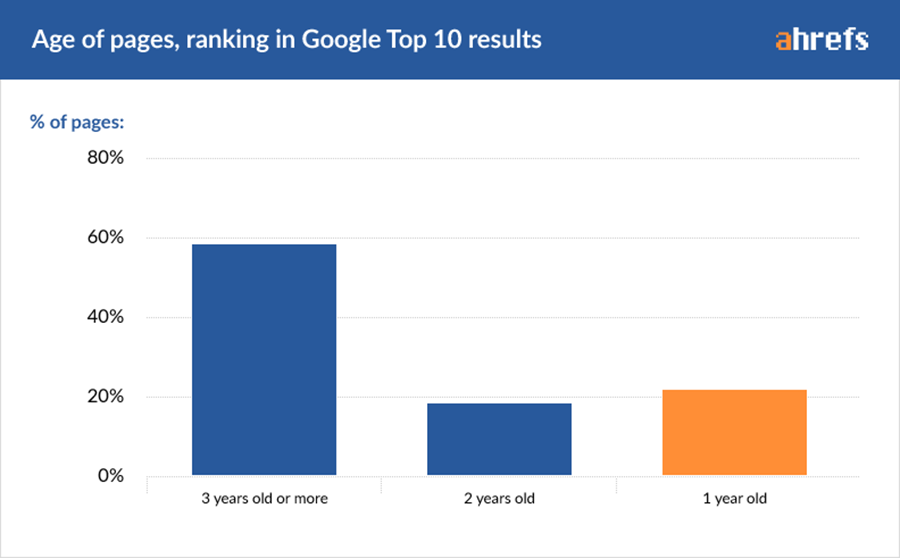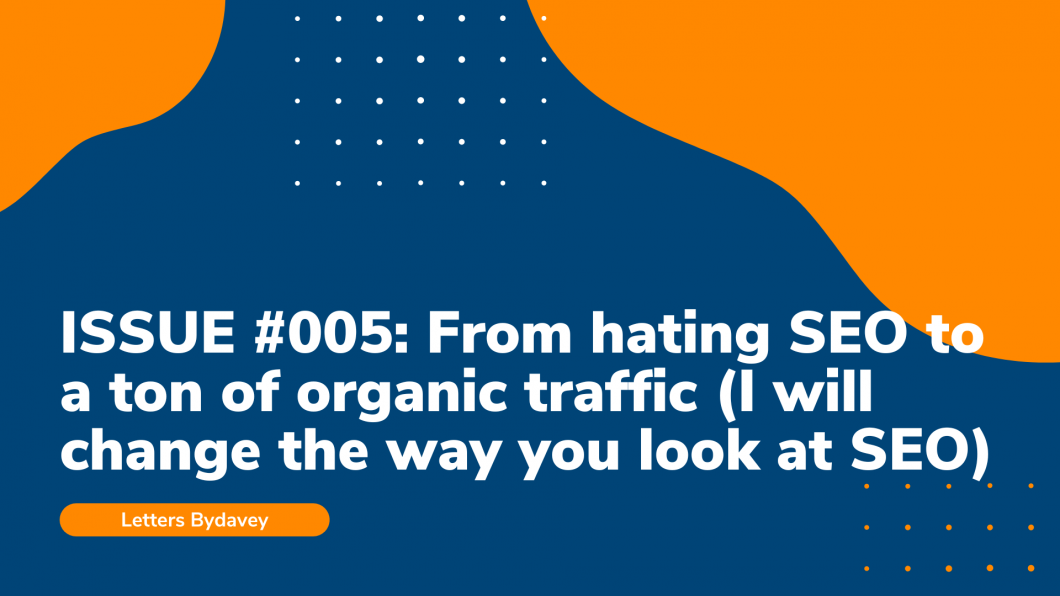In this issue, I will be talking about why SEO doesn’t work. This is for founders who think SEO is dead or doubt its existence.
Founders are beginning to realize that it is ridiculous to not use SEO to get organic traffic. Do you?
Thanks for reading Letters Bydavey! Subscribe for free to receive new posts and support my work.
I’ve seen enough founders who have a business website but never optimize it for search until it’s too late.
It’s easy to get visibility on social media since the platform already has an audience. No matter how small, you’ll get some impressions on your content right off the bat.
With organic traffic, it’s different. Once you get a place in the index, it’s very easy to optimize the pages to rank higher & for relevant terms.
I’m not alone in bragging, several brands are utilizing organic traffic from search.
See how Adobe is getting 7.5M visitors from search. The reason why so many people are still not even looking at organic traffic is the fact that it takes time. They don’t want to wait.
Even if a handful of them create content that deserves to rank on search, they take shortcuts. The problem is a lack of understanding.
Shortcuts such as AI writing tools. AI can help you with content, but will that bring you sales or fulfill any business goals you might have?
This is why people don’t make use of SEO. It’s not SEO that doesn’t work, it’s the understanding that doesn’t make it work.
This edition will change the way you look at organic traffic.
The primary reason why SEO doesn’t work (or at least it seems that way)
Ahrefs studied over 1 billion pages & 91% of those pages never got “any” organic traffic.
Furthermore, Ahrefs studied how long it took for the remaining 7% of the page to get traffic from the search. Here’s a mind-boggling stat from the study.

This should answer the question, of why SEO doesn’t work. Because people don’t wait long enough for it to work.
Let me highlight some mistakes you might be making that make you think that SEO doesn’t work:
- You publish content & let it sit without repurposing, cross-promoting & interlinking. It’s not gonna promote/sell itself
- You compete with the top 3 results, ignoring the bottom 7 first
- You don’t optimize the pages based on the impressions data that’s available in GSC
- You don’t update the content & keep it outdated
This misunderstanding ends today. I will explain how search works & how you can rank your pages for keywords your audience is searching for.
Here are the steps you can steal to cut the problem from the roots.
Step 1: Understand why you need SEO
I’ve seen several founders who’ve completely ignored organic traffic as a channel for marketing. They’re a superstar on social but without realizing the potential organic traffic has.
The problem with social media is that you have to create content every day to stay on top. But, in the case of SEO, you create once & maintain it to get organic traffic from the search for years to come.
Typeform, a tool that’s built for a very specific set of audiences has 105M visitors a month from search. These people aren’t even their customers, but they’d opt in or tell someone about the tool.
SEO is an investment for the future. The ROI is mind-blowing.
Bill gates once said, “Although about 3 million computers get sold every year in China, people don’t pay for the software. Someday they will, though, and as long as they’re going to steal it, we want them to steal ours. They’ll get sort of addicted, and then we’ll somehow figure out how to collect sometime in the next decade.”
This is exactly why you need SEO. Long-term ROI. Evergreen organic traffic, for years to come
Step 2: Understand how search works
To use something, you need to first understand the behind-the-scenes of it. In a nutshell, search engines are huge databases that store a copy of all the pages their crawlers visit.
When you search, the algorithm fetches pages from the database & ranks them based on relevance.
Here’s a detailed guide I’ve created on how search engines work.
You can’t control what happens behind the scenes but you sure can control what happens on your site. The whole point of understanding how search engines work is to realize that you have no control over them. Instead, you’d focus on what you can control.
Step 3: Optimize pages for search
Now that you know that you can’t control search engines, you should know how to optimize the pages for search. That’s something you can control.
Here’s how to make your pages eligible to rank for keywords your audience is searching for:
- Find the topics your audience is searching for. As 6 billion searches happen every day on Google alone, there’s an infinite opportunity for every online business owner.
- Once you have the list of search terms the next thing you should look for is the type of keyword it is. The type of search term depends on the search intent of the end user. Once you create content matching the intent, your content will be relevant to the end user. This is exactly what search engines look for while ranking the content.
- Have questions people about the topic as sub-headings. This will force you to answer what they’re looking for and this will be noticed by search engines. Use the ‘People also asked’ section to find such questions. You can also search for questions on forums like Reddit, Quora & Facebook groups.
- Use Semrush, Ahrefs, or Ubersuggest to find the keywords gap between your site & competitor’s site (all three have this report). This keywords gaps will give you a lot of ideas to work upon. If you don’t have any paid tools, you can get in touch with me, mention your site & competitor’s site, and I’ll share the report with you within 48 hours (for free).
TL;DR
Why SEO doesn’t work? Because you don’t create pages for SEO to work in your favor. SEO is very easy at the quantum level.
It’s all about finding the search intent & creating content that matches that intent. Repeat this on a large scale & you’ll do SEO fine.
When you find people saying the SEO doesn’t work, it’s actually their misinterpretation that’s working.
I have defined a clear & simple strategy for anyone to execute. For SEO to work, you don’t need a world-class setup, all you need to think (& be obsessed about) is search intent. Everything will take care of itself.
That’s a wrap for this issue. I’ll see you in the next one.
Whenever you’re ready, here’s how I can help:
- Sit with you 1-on-1 & create a content marketing strategy for your startup. Hire me for paid consulting.
- Write blogs, social posts, and emails for you. Get in touch here with queries (Please mention you found this email in the newsletter to get noticed)
- Join my tribe on Twitter where I share SEO tips (every single day) & teaser of the next issue of Letters ByDavey.

